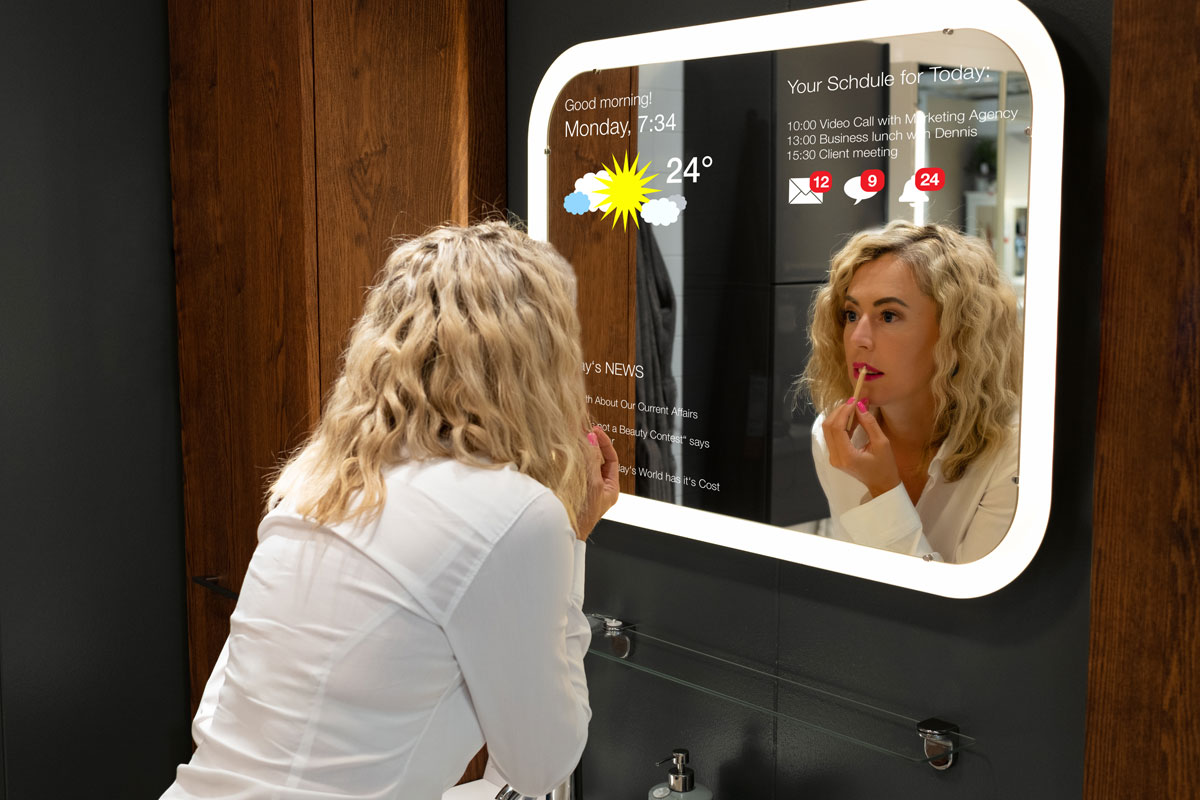
Smart homes are not only convenient and futuristic, but they can also pave the way for a greener future. By embracing smart home technology, homeowners can reduce their energy consumption, lower their carbon footprint, and contribute to a more sustainable environment. In this article, we will explore the various smart home devices and technologies that can make your home more eco-friendly.
Green Smart Home Technology
Thanks to the Internet of Things (IoT), technology and energy efficiency now go hand-in-hand, enabling smart homes to become green homes. Here are some examples of green smart home technology:
Motion Detecting Smart Lighting
Motion detecting smart lighting is a simple yet effective way to save energy. By combining smart lights with a motion detector system, you can significantly reduce your energy consumption. These lights automatically turn off when no one is in the room, resulting in energy savings ranging from 35% to 75%.
Home Automation and Appliances
Home automation allows you to control various aspects of your home from your mobile device, optimizing resource usage and reducing waste. Smart home automation systems can control your lights, climate, media, air conditioning, hot water, and even smart appliances like ovens, refrigerators, and coffee makers. By managing your home’s energy consumption, you can potentially reduce energy usage by up to 15%, equivalent to 200 million tons of CO2.
Smart Thermostats
A smart thermostat can have a significant impact on both your comfort and energy bills. By scheduling your HVAC system to run at specific times and controlling your home’s temperature remotely, you can save up to 12% on heating and 15% on cooling, according to Google® Nest.
Smart Irrigation Systems
Outdoor water usage accounts for a substantial portion of household water consumption. Smart irrigation systems with real-time sensors can help optimize water usage, avoiding both overwatering and underwatering. This technology can help reduce water waste, especially in dryer and arid regions.
Leak Detection Sensors
Water leaks can lead to significant water waste. IoT leak-detecting sensors monitor water flow and alert homeowners in case of any leaks. Some advanced sensors can even cut off the water supply to prevent further damage.
Plugs and Power Strips
Smart plugs and power strips offer a simple solution to make any electrical device smarter. By remotely controlling the power supply to devices, you can avoid unnecessary standby power consumption and reduce energy waste.
LED Light Bulbs
Smart LED light bulbs are not only energy-efficient but also long-lasting. They consume up to six times less energy than incandescent bulbs and can last up to 25,000 hours of use. Additionally, their smartphone-controlled features allow for easy scheduling and energy-saving notifications.
Predictive Maintenance
IoT technology enables proactive maintenance in smart home devices. Sensors can detect underperformance or malfunctioning and alert homeowners, allowing for timely repairs and reducing e-waste. This also enables service providers to offer more efficient home maintenance services.
Smart green technology in homes offers multiple benefits for both homeowners and the environment. By embracing these technologies, you can significantly reduce waste, minimize your carbon footprint, save money, and enhance your family’s quality of life.
How Ambiq Contributes
Ambiq® provides ultra-low power SoCs (System on Chips) that support key technologies required by connected homes and smart buildings, such as Bluetooth® Low Energy. Built on their patented Subthreshold Power Optimized Technology (SPOT®) platform, Ambiq’s products reduce the total system power consumption of battery-powered endpoint devices to the nanoamp level.
By incorporating Ambiq’s power-efficient solutions, smart homes can further optimize their energy consumption, making them even more sustainable and eco-friendly.
FAQs
Q: How can smart home devices contribute to a sustainable environment?
A: Smart home devices help reduce energy consumption by optimizing resource usage, automating processes, and providing real-time monitoring and control. They enable homeowners to minimize their carbon footprint and contribute to a greener future.
Q: Can smart home technology save money on utility bills?
A: Yes, smart home technology can help reduce energy consumption, resulting in lower utility bills. By optimizing energy usage, homeowners can save money while supporting sustainability.
Conclusion
Smart home devices and technology offer a promising path towards a more sustainable future. By embracing these advancements, homeowners can actively participate in reducing waste, lowering energy consumption, and creating a greener environment. With the help of innovative companies like Ambiq, the transition to an eco-friendly lifestyle becomes more accessible and impactful.
